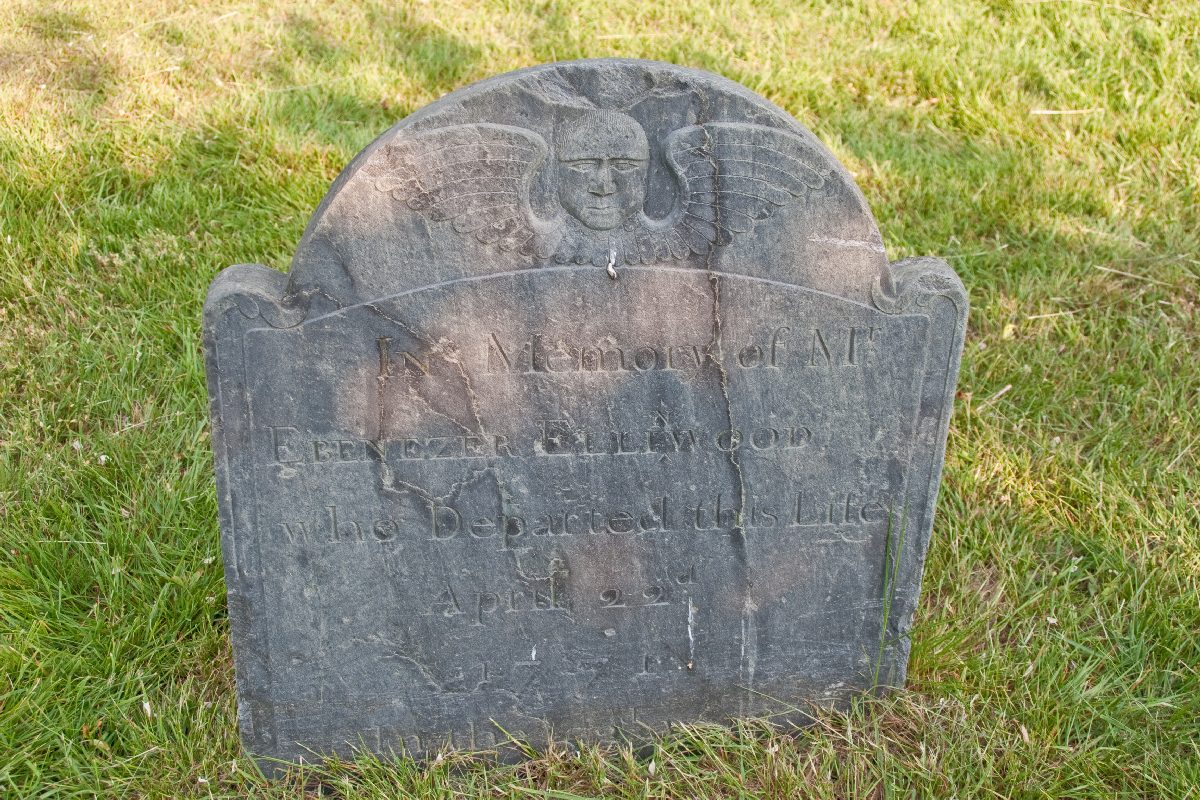As a historian, I find this idea that connecting New England families to slavery is "digging up dirt" or connotes the bias of Gates disturbing because the author doesn't seem to understand that slavery is not just about the South and not just about black people. Slavery is deeply intertwined in the history of New England and white people. Slavery was legal in all colonies and tied to the occupations of shipbuilders, merchants, and sea captains, key components of the New England economy. As a U.S. history teacher in Maine, I struggle every year to convince students that slavery is part of the history of New England. In addition, I find the show fascinating because it shows that race is not clearly defined and, pardon the pun, history is not black and white - rather we are all human no matter what color our skin may be. As a genealogist, I wonder why one would expect that Gates would not showcase his area of expertise, the ancestry of African-Americans. Personally, I find it fascinating to see how a genealogist works to put together information about a group of people who are difficult to document.
So far, I have found several indirect links between my New England ancestors and slavery. Today I present two of those stories.

Samuel Maverick was born in 1602 and is the brother of my 11th great-grandfather. Their father was Rev. John Maverick who brought his family from Beaworthy, Devonshire, England in 1630 and became the one of the first ministers in Dorchester, MA. Samuel settled at Noddle's Island (currently part of Logan Airport after the strait separating it from the mainland was filled in the 1940s). Samuel purchased several slaves who were natives of Tortuga. My cousin and fellow genealogist, **Bill West, wrote about an appalling incident describing how Samuel, wishing to breed more slaves, ordered a male slave to force himself on one of the female slaves. Then one has to consider the contrast of the account by John Winthrop commenting on Samuel's kindness to Indians during a smallpox epidemic. "Among others, Mr. Maverick of Winnesemett is worth of a perpetual remembrance. Himself, his wife, and servants went daily to them, ministered to their necessities, and buried their dead, and took home many of their children." He reportedly buried 30 Indians in one day and took in many orphaned children. Now the question becomes, did he take in those orphans as slaves?
 |
| Noddle's Island |
Ebenezer Ellingwood Jr. (6th great-granduncle) and his brother William were business partners. They were sea captains who sailed to Barbados among other places. Tax records reveal the brothers suffered some losses in their business and in the 1750s he was a hogreeve (overseer of pigs) for Beverly and applied for a license to operate a tavern and inn. Later court records and his estate list him as a yeoman suggesting he had retired from operating a tavern and inn shortly before his death at the age of 53. This is condensed from a posting at dougsinclairarchives.com. A longer explanation of Ebenezer's life with additional sources can be found at his site as well as information on other Ellingwood relatives. Part of the information he shares are stories about the slaves of Ebenezer Ellingwood.
Ebenezer was abated part of his taxes for the "loss of his negro" in 1758, who is undoubtedly the unnamed slave of Ebenezer in Rev. Hale's Beverly death records who drowned in that year. Those records also mention the death of a slave infant in 1757. The tax list for 1760 includes two slaves. One may have been Jethro, who is known to have been with Ebenezer in 1763. Jethro is the only slave named in Ebenezer's estate inventory. It is very likely Jethro who was beaten by Thomas Diall in 1764. Ebenezer brought him to court for the offense and for trespass and won a judgement of 9 shillings and court costs.
 |
| Grave of Ebenezer Ellingwood |
http://www.celebrateboston.com/disasters/smallpox-epidemics.htm
http://dougsinclairsarchives.com/ellingwood/ebenezerellinwood.htm
Rev. John Maverick (father of Samuel) - 12th great-grandfather
Moses Maverick (brother of Samuel) - 11th great-grandfather
Abigail Maverick - 10th great-grandmother
Martha Ward - 9th great-grandmother
Martha Tuttle/Tuthill - 8th great-grandmother
Martha Haskell - 7th great-grandmother
Ruth Safford - 6th great-grandmother
Martha Haskell - 5th great-grandmother
Sally Houghton - 4th great-grandmother
Florilla Dunham - 3rd great-grandmother
Nina King Ellingwood - 2nd great-grandmother
Annie Florilla Gibbs - great-grandmother
Fern Lyndell Cotton - grandmother
Ebenezer Ellingwood (father of Ebenezer Jr) - 7th great-grandfather
Joseph Ellingwood (brother of Ebenezer Jr) - 6th great-grandfather
John Ellingwood - 5th great-grandfather
John Ellingwood Jr - 4th great-grandfather
Asa Freeman Ellingwood - 3rd great-grandfather & husband of Florilla Dunham (above)
Again, another cousin match. I'm descended from Rev. John Maverick, too, and we share the lineage down to Martha Tuthill, and from there I descend from Martha Haskell's sister Lucy, who married Jabez Treadwell. You and Bill West share this line, too, and it is the longest colonial lineage I've found I shared among any other genealogy bloggers. Great write up about slave owners. I remember the first time I found a will that mentioned slaves was an ancestor in 1600s Gloucester, MA. Since then I've found quite a few and suspect even more. Even some of my Quaker ancestors!
ReplyDelete